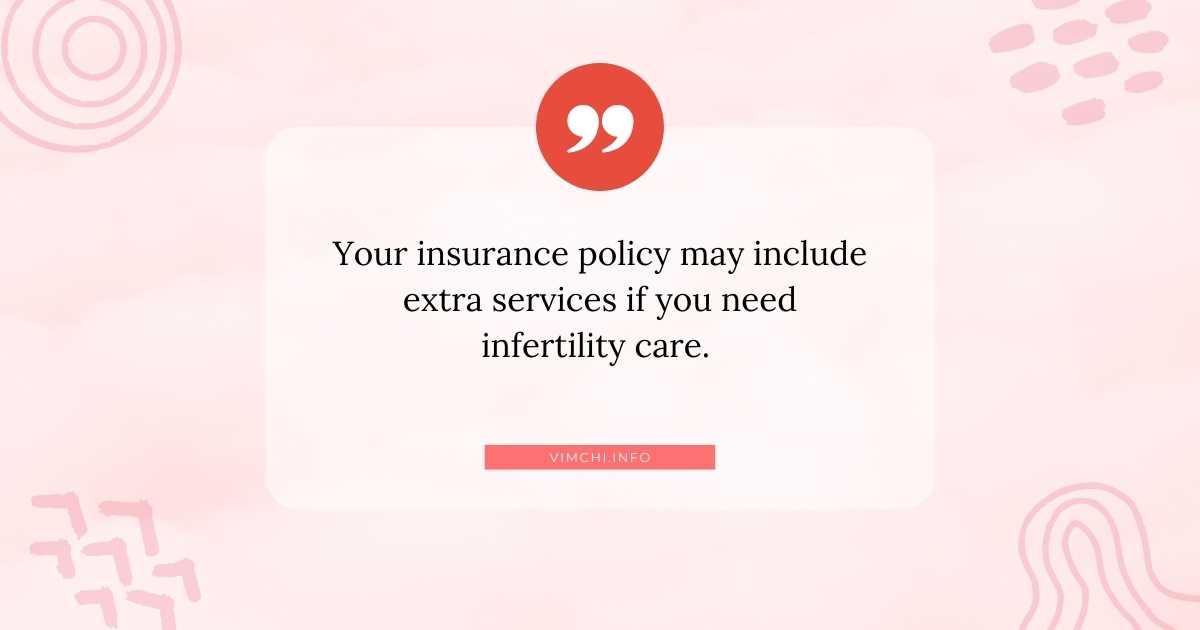
Many couples or individuals need fertility assistance to have children. Some need it after receiving a diagnosis of infertility. Others require it because they are in a same-sex relationship. People who choose to be single and desire to have kids can also avail themselves of fertility treatments. There are various types of fertility assistance. Unfortunately, there’s little coverage for these services. This leads us to the question, “Are infertility treatments covered by insurance?”
Let’s find out here.
Read: Is high deductible health insurance better for pregnancy?
Are Infertility Treatments Covered by Insurance?
Infertility treatments are not always covered by insurance. If they are covered, the terms vary by the state in which you live. They also rely on the size of the employer and the type of insurance.
Insurance companies will only cover fertility treatments if they are medically necessary. Since most treatments are not necessary, they are not covered by many private insurance plans or Medicaid programs.
Some plans will only cover in vitro fertilization (IVF) but they won’t cover the accompanying injections that are needed to conceive. Some plans don’t even cover IVF at all.
Since infertility is a couple’s disease, men should also check their insurance plan if it covers male infertility care.
There are risk factors involving females and males. Thus, experts recommend that both partners must be evaluated.
If you and your partner have health insurance plans that cover infertility treatments, make sure to pick the one that offers more coverage.
Read: Are high deductible plan premiums tax-deductible?
What States Cover Some Infertility Treatments?
There are 15 states that require health insurance policies to cover some infertility treatments.
In states with a mandate to cover laws, these laws only apply to some insurers. Some states only require HMO plans to cover infertility services.
State laws also don’t apply to self-insured employer plans that are still regulated by federal law.
However, not all patients living in states with coverage laws are eligible for infertility treatments. For instance, if a person has unexplained infertility will only qualify for coverage to undergo IVF after five years of infertility.
Who to Call to Discuss Infertility Treatment Options?
The first stop would be your doctor’s office. Your OB/GYN can order diagnostic tests that can measure hormone levels. They also analyze the semen of male partners.
With diagnostic tests, you will know what stops you from getting pregnant. Furthermore, your doctor can recommend the best time to make love with your partner and may prescribe ovulation-stimulating drugs.
Your doctor may recommend the least invasive methods. Instead of going to an infertility specialist, visiting your gynecologist is the less expensive option. Doing so will help you pay less out of pocket.
It’s important to remember that some plans will cover fertility medication while others will pay for one type of medication but it won’t cover another.
If the medicine prescribed is not covered, make sure to ask your physician to switch.
When to See an Infertility Specialist?

If you are not successful in conceiving after seeing your OB/GYN, then consider going to an infertility specialist. Your gynecologist may recommend a specialist.
You should consider two local specialists before settling with one. You need to be comfortable with your specialist.
After all, you’ll be working with him/her for months or even years.
When you do see a specialist, you must make sure that he/she is in your insurance’s plans network. Depending on your health insurance carrier, you can find infertility specialists through its online provider directory.
Your insurance policy may include extra services if you need infertility care.
Read: Health insurance plans for a family
How Many Infertility Treatments are Covered?
For many couples, they may need several cycles before getting pregnant. For instance, they may consider intrauterine insemination first before moving into IVF.
IUI procedure requires the injection of sperm into the uterus using a catheter.
With IVF, doctors will retrieve eggs from the woman to fertilize them with sperm. The viable embryos will be transferred into the woman’s uterus.
There are various cases of couples getting luck on the first try. However, if it doesn’t happen to you, don’t get discouraged. Most of the time, it requires multiple attempts before getting a successful conception.
Thus, it’s vital that you check the number of attempts that your plan will cover. Talk to your doctor to create the perfect strategy. Before starting IVF, doctors recommend up to six rounds of IUI.
Some health plans only cover in vitro fertilization after a certain number of IUIs.
Why IVF isn’t Covered by All Health Insurance Plans?
Most Americans can’t afford infertility treatments. However, not all states have passed laws that require health insurance plans to cover these treatments. Coverage is incomplete because people don’t see infertility as a disease.
However, the out-of-pocket costs related to infertility treatments are still exorbitant, even for in-network care.
You can pay for $2,700 out-of-pocket cots just for medicines alone. For blood tests, you may need to endure out-of-network services, which are often expensive.
In that case, even if you have coverage for your infertility treatments, you are still left with huge bills. There’s a new federal insurance law that went into effect in 2022.
The law states that patients don’t need to pay more than the in-network cost-sharing if the insurer’s provider gave inaccurate information.
Infertility treatments involve a series of complex procedures. Couples need to undergo lab work, surgery, and anesthesia, among others.
What is the Share of Employers for Fertility Treatments?
Large employers are more likely to offer fertility benefits to their employees than smaller employers.
According to this data, 56% of employers with over 500 employees cover a form of fertility service. Unfortunately, most employers don’t cover treatments, like IVF, UI, or egg freezing.
Read: Health insurance plans without a waiting period
Is Surrogacy or Adoption Covered by Insurance?
If infertility treatments didn’t make you conceive, you may choose to find a surrogate to carry your child. Choosing a gestational surrogate will only cover the retrieval and fertilization of eggs.
Most plans don’t cover services conception through a surrogate.
Thus, after many failed attempts, you may consider adoption. You may check your insurance plan to find out if your plan reimburses your adoption expenses. Fortunately, if you have Health Savings Account (HSA), the adoption costs are considered an eligible expense.
Summary
Are infertility treatments covered by insurance? Not all health plans will cover fertility treatments. It still depends on your infertility issues. Thus, make sure to talk to your doctor about them.
Speak Now ... Or Forever Hold Your Peace